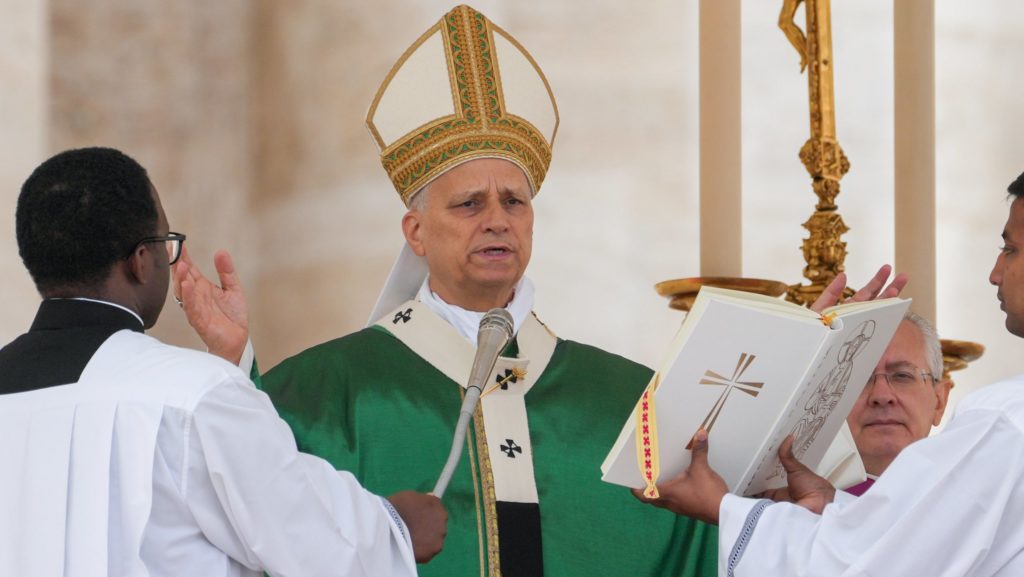Pope Leo XIV on Sunday condemned the resurgence of antisemitic hatred and appealed for renewed commitment to peace in the Middle East while also assuring prayers for victims of a devastating earthquake in the Philippines.
“I express my concern about the rise of antisemitic hatred in the world, as unfortunately we saw with the terrorist attack in Manchester a few days ago,” the pope said from St. Peter’s Square before leading the Angelus prayer. He added that he “continue[s] to be saddened by the immense suffering of the Palestinian people in Gaza.”
The pope said that “in the dramatic situation in the Middle East, some significant steps forward have been taken in peace negotiations,” and he urged all leaders “to commit themselves to this path, to bring about a ceasefire, and to release the hostages.” He also invited the faithful “to remain united in prayer, so that the ongoing efforts may put an end to the war and lead us towards a just and lasting peace.”
Turning to the Philippines, where a strong earthquake struck the central region on Sept. 30, Pope Leo expressed closeness “to the dear Filipino people” and said he prays “for those who are most severely affected by the consequences of the earthquake.”
“Faced with any danger,” he added, “let us remain united and supportive in our trust in God and in the intercession of our Blessed Mother.”
Call to pray for peace
The pope invited Catholics to join spiritually with those gathered at the Shrine of Our Lady of the Rosary in Pompeii for the traditional supplication held each October.
“In this month of October, as we contemplate with Mary the mysteries of Christ Our Savior, let us deepen our prayer for peace: a prayer that becomes concrete solidarity with those people tormented by war,” he said. “Thank you to the many children around the world who have committed themselves to praying the rosary for this intention. You have our heartfelt thanks!”
“If for a long time we have associated with mission the word ‘depart’ … today the frontiers of the missions are no longer geographical, because poverty, suffering, and the desire for a greater hope have made their way to us,” he said.
“Those boats which hope to catch sight of a safe port, and those eyes filled with anguish and hope seeking to reach the shore, cannot and must not find the coldness of indifference or the stigma of discrimination!” he warned. “Mission is not so much about ‘departing’ but instead ‘remaining’ in order to proclaim Christ through hospitality and welcome, compassion and solidarity.”
The pope encouraged renewed cooperation among churches, noting that migration from the Global South can “renew the face of the Church and sustain a Christianity that is more open, more alive, and more dynamic.” He also called for “new missionary effort by laity, religious, and priests who will offer their service in missionary lands,” especially in Europe.
Concluding, Pope Leo offered his blessing “to the local clergy of the particular churches, to missionaries and those discerning a vocation,” and told migrants: “Know that you are always welcome!”
Throughout his homily and his Angelus address, Pope Leo returned to a single message: faith expressed in prayer, compassion, and hospitality remains the seed of peace — whether in war-torn regions, along migration routes, or in the hearts of those who choose to welcome others.

